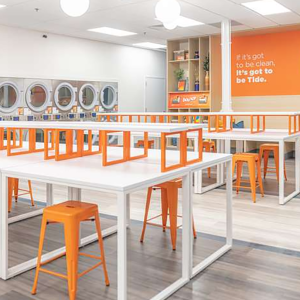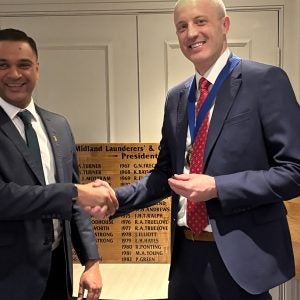INTERNATIONAL
EXPODetergo 22 is almost upon us, 21-24 October at the Fiera Milano exhibition centre in Rho, Milan. Along with innovations debuting on the show floor, a highlight of the event is the Cinet GBPAP Awards. There are 46 finalists from 32 countries in the three categories – Industrial Textile Services, Retail Textile Cleaning RTC – SME and RTC.
The full list of names can be found in the Official GBPAP 22 Catalog. Most pitches will be live, some will be presented online. The judging, from 10-5 pm) and awards (from 5.30pm) will be held on 21 October at EXPODetergo.
For 17 years the International Committee for Professional Textile Care (CINET) has offered a platform for industry professionals to exchange trade information and experiences on PTC market trends, innovations, sustainability, hygiene, quality issues, effective and efficient processing to meet fast changing market demands. To do that effectively each year extensive research is carried out, E-Learning is provided, the International Quality scheme CERCLEAN is set up to value the advantages of Best Practices in Professional Textile Care. “Currently, turbulent times are giving the PTC industry a difficult period. At medium and long term the market perspective is very promising, said the organisation.
Peter Wennekes, CEO of Cinet said: “The GBPAP competition is a kind of Professional Textile Care Olympiad. We are doing this now for the fifth time. The last edition of 2020, which took place online because of Covid-19, was followed by 26,000 net users. An unexpected record. The competition invites candidates from all over the world to present their know-how and achievements in front of an international jury of some 20 independent jurors from research institutes or from the trade press.
“We differentiate between the companies according to the categories (1) industrial laundries, (2) small dry cleaning companies and (3) drycleaning chains. The company presentations are graded according to a scale. Whoever gets the highest number of points wins a prize in their category. Three prizes are awarded in each category: for sustainable development, innovation and an overall prize for exemplary, high-quality textile care. Additionally we provide Country Awards, Corporate Social Responsibility Awards and this time Awards of Excellence for Entrepreneurship.
What are the benefits for the companies that participate?
According to Wennekes: “It’s not primarily a financial gain, but immense pride for the winners and the best invited for a final live presentation during EXPODetergo. The few minutes of the presentation in front of a large expert jury, which makes the final decisions here, and the festive award ceremony in front of a large, international and expert audience are the culmination of several months of preparatory work in which teams in companies were involved. There is great emotion and great pride in it.
“Winning an award is also a great communication tool, both internally and externally. I quote a Dutch start-up that was selected for the last round, the live presentation in front of the jury in 2018. It relied on its “Top 35 in the World” selection to prove its credibility with its customers and investors and, it is also paying off financially. The presented successes are also real sources of inspiration for other professionals. Examples of good practice that can be adapted to suit your own circumstances.”
What are CINET’s next challenges and priorities?
Wennekes believes there are many challenges and priorities ahead for the industry: “The digitisation of the profession, sustainable development and training. A few more professional associations should join us. We provide online modules for training specialists at a technical, commercial or management level. We have developed a hybrid master’s course in several countries that takes place online and on-site. The profession needs training, exchanges to improve and become a major player in the economy. Our role is to support them by spreading best practices.
“In terms of content, we see priorities in the entire entrepreneurial behavior and in the area of sustainability. I am of the opinion that the industry must adapt to far-reaching entrepreneurial changes. The notion of service is becoming increasingly important and must address the contributions of digitisation, robotization and big data. Marketing and available tools have evolved. The profession must seize them in order to make them their own.
“The other priority that is becoming an emergency in many countries is the issue of sustainable development and circularity. Textile care companies face great challenges, but there are also great opportunities for active designers, because the need for textile care will continue to increase.”






